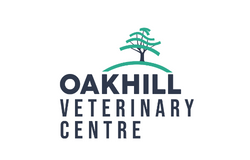CHRISTMAS FOOD WHICH IS DANGEROUS FOR YOUR PET
Christmas is a time of overindulgence for us humans, but some of our favourite festive foods can be dangerous to our pets. It’s easy to get swept up in all the festive excitement and treat your pets to a bite of stuffing or a nibble of your mince pie – but resist those big puppy eyes at all costs!
Avoid an expensive emergency trip to the vet this Christmas by keeping your cats and dogs away from these dangerous foods.
- Chocolate – it’s one of the most well-known no-no food for dogs, but did you know chocolate is just as dangerous for cats too?
- Christmas pudding and mince pies – anything containing dried vine fruits including currants, sultanas and raisins needs to be avoided.
- Leeks, onions, shallots and chives – most food belonging to the allium plant family is poisonous to cats and dogs.
- Artificial sweeteners – xylitol is found in lots of things, including sweets, baked goods and peanut butter.
- Bones – cooked bones are likely to splinter off and can lodge themselves in the oesophagus or cause tissue damage inside the mouth or throat. Cooked or raw bones can cause a blockage in the intestines, which can be fatal without surgery to remove.
- Alcohol – all alcohol can be harmful to pets, so please keep out of reach.
- Nuts – peanuts have been reported to have adverse effects in some pets and macadamia nuts are toxic to dogs.
If you think your pet has ingested any of the above, please contact us immediately.
SIGNS OF POISONING
The symptoms that your pet will display depends on what they have ingested, but common symptoms to watch out for include:- vomiting
- diarrhoea
- dehydration
- hyperactivity
- convulsions
- high temperature and blood pressure
- abnormal heart rhythm and tremors
WHAT TO DO IF YOUR CAT OR DOG BECOMES ILL
The key to keeping pets safe over Christmas is prevention. But even after all precautions are put in place, Christmas can be a busy and chaotic time, with large quantities of food and presents left unattended.
Curious pets, particularly dogs, may investigate and eat gifts (including edible or inedible ones) left under the tree, food in the kitchen or chew on plants decorating the house.
It’s essential to know what to do if you suspect that your pet has been poisoned, or if generally unwell.
- If your pet is showing any signs of poisoning, bring them to see us (or Vets Now Preston out of hours) immediately.
- Do not try to make your pet vomit and never give them salt water (it can be lethal).
- If you are unsure if a visit to your vet is necessary, call us or the Animal PoisonLine (01202 509 000, charges apply) for advice.
